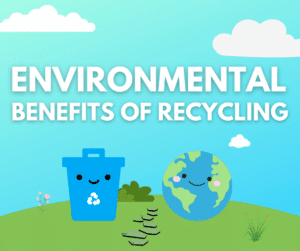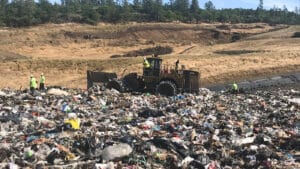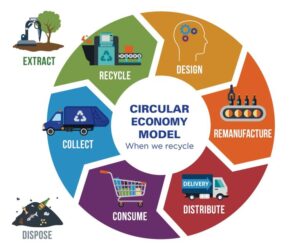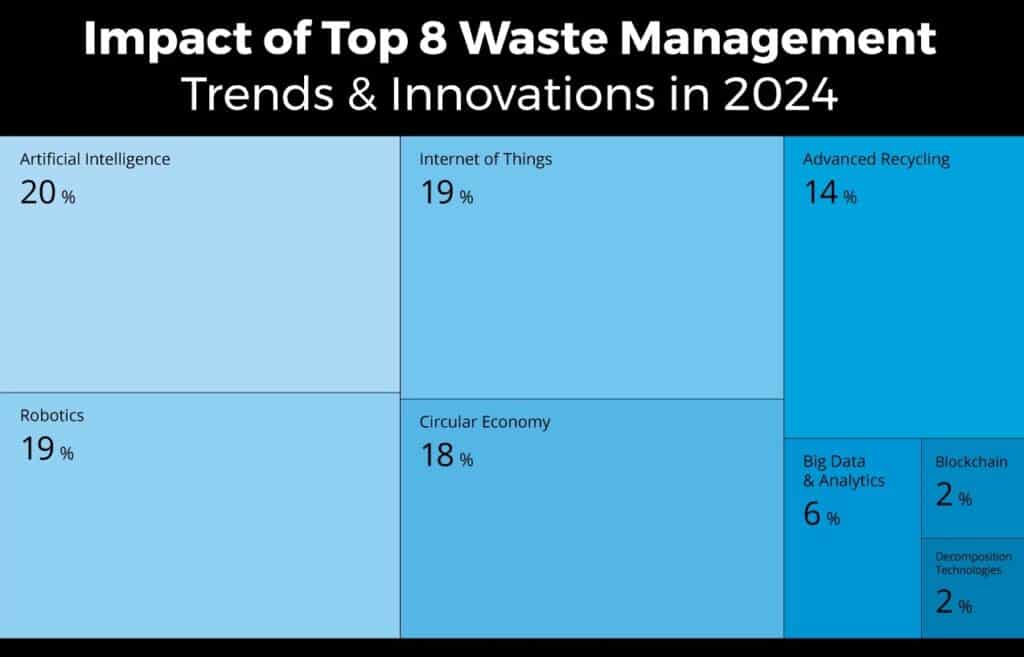In our rapidly evolving world, where environmental concerns are taking center stage, one question lingers on the minds of many: Is recycling worth the trouble? As we navigate through bustling cities and suburban landscapes, recycling bins become a familiar sight. However, our continued reliance on convenient, single-use products raises concerns. But do the efforts put into recycling truly make a significant impact? Let’s dive into the nuances of recycling, exploring its environmental benefits, the challenges it faces, and whether the trouble is justified.
The Environmental Impact of Recycling
Reduction in Resource Extraction and Energy Consumption Recycling isn’t just about sorting our waste; it’s about lessening our dependency on raw materials, such as paper products. By recycling materials like paper, glass, and metals, we significantly reduce the need for fresh extraction. The energy required to process recycled materials is often far less than what’s needed to produce goods from scratch. So, every recycled item is a small victory in the battle against resource depletion and excessive energy consumption.
Mitigation of Greenhouse Gas Emissions Landfills are notorious for emitting greenhouse gases, contributing to climate change. Recycling helps divert waste from landfills, subsequently lowering the emission of harmful gases like methane. When we recycle, we play a role in curbing climate change and preserving the health of our planet.
Preservation of Biodiversity and Ecosystems The extraction and processing of raw materials can have devastating effects on natural habitats and waterways. By recycling, we reduce the demand for such materials, alleviating the pressure on ecosystems and the species that call them home. The positive ripple effect of recycling extends beyond our bins, reaching into the heart of our environment.
Challenges and Controversies in Recycling
Sorting and Contamination Issues in Recycling Processes While the intentions behind recycling are noble, the process itself isn’t without challenges. Contamination, wherein non-recyclable items find their way into recycling streams, poses a significant issue. It complicates the sorting process and may lead to otherwise recyclable materials being discarded. Educating the public on proper recycling practices becomes crucial to overcoming this hurdle.
Economic Challenges and Market Fluctuations The recycling industry isn’t immune to economic fluctuations. The value of recycled materials can vary based on market demands, impacting the profitability of recycling facilities. To ensure the sustainability of recycling programs, it’s essential to address economic challenges and create a stable market for recycled goods.
Debate on the Effectiveness of Recycling Programs While recycling undeniably brings environmental benefits, the effectiveness of recycling programs is a topic of ongoing debate. Critics argue that some programs may not deliver the expected outcomes, questioning whether the resources invested are truly justified. Striking a balance between efficient recycling systems and realistic expectations is crucial.
The Economic Perspective
Job Creation and Economic Benefits of Recycling Industries Recycling isn’t just about environmental gains; it’s a robust industry that generates employment opportunities and tax revenues. From collection to processing and manufacturing, various stages of the recycling chain contribute to job creation. Supporting recycling initiatives means supporting local economies and fostering sustainable growth.
Cost Savings in Waste Management and Landfill Usage Waste management and landfill maintenance come at a significant cost. By diverting materials away from landfills and waste management facilities, recycling contributes to substantial cost savings. Municipalities can redirect funds towards more pressing community needs, creating a win-win situation for both the environment and public budgets.
Government Incentives and Policies Promoting Recycling Governments worldwide recognize the importance of recycling in building sustainable communities. Many have implemented incentives and policies to encourage recycling practices. These can range from tax benefits for businesses engaging in recycling to municipal programs that reward households for their recycling efforts.
Why is recycling expensive?
The cost of recycling can be attributed to several factors that complicate waste management strategies. One primary reason is the increased reliance on advanced recycling programs that can handle the complexities of modern waste, similar to the systems used in China. These systems require significant investment in technology and infrastructure to ensure that recyclable materials are effectively sorted and processed. Furthermore, many municipalities have transitioned to single-stream recycling systems, where all recyclables are collected in one bin. While this may seem convenient for consumers, it often leads to contamination, making the recycling process less efficient and consequently more expensive to manage.
Additionally, the fluctuating market for recycled materials plays a crucial role in the economics of recycling. When demand for certain recyclables decreases, municipalities may find themselves with unsustainable costs related to collection and processing. This economic volatility can deter investment in recycling programs, as local governments assess the expenses against the benefits. Ultimately, addressing these issues requires a holistic view of waste management strategies to ensure that recycling remains a viable solution for communities.
Individual and Community Contribution
Empowering Individuals to Make a Difference Amidst the grand scale of environmental issues, individuals might question the impact of their actions. However, the collective power of individual choices should not be underestimated. Each recycled item contributes to a larger movement, showing that small actions, when multiplied, can lead to significant change.
Community Initiatives and the Role of Local Governments Communities play a pivotal role in promoting recycling. Local governments can implement comprehensive recycling programs, educate residents, and provide the infrastructure needed for effective waste separation. Community engagement fosters a sense of shared responsibility and encourages sustainable habits.
The Psychological Impact of Recycling on Environmental Awareness Engaging in recycling isn’t merely a physical act; it’s a mindset that fosters environmental consciousness. When individuals actively participate in recycling, they become more aware of their consumption patterns. This heightened awareness often extends beyond recycling, influencing broader lifestyle choices that contribute to a greener, more sustainable world.
Recycling tips for homeowners
Making a positive impact on the environment starts at home, and implementing effective recycling practices, including composting, is an easy way to do so. Here are some practical tips to enhance your recycling efforts:
- Use designated bins: Set up separate bins for recyclables and non-recyclables in your home. Clearly label each bin to avoid confusion and streamline the sorting process.
- Check packaging: Before disposing of items, always check the packaging for recycling symbols and guidelines. This will inform you about what can and cannot be recycled in your local program.
- Recycling appliances: Don’t forget about larger items like appliances. Many manufacturers offer recycling programs or take-back services for old appliances, ensuring they are disposed of properly and sustainably.
By following these simple recommendations, homeowners can significantly reduce waste and contribute to a more sustainable community.
Alternatives and Innovations
Emerging Technologies in Waste Management Innovation is key to addressing the challenges of recycling. Emerging technologies, such as advanced sorting systems and improved recycling processes, are enhancing the efficiency of waste management. Staying abreast of these innovations ensures that recycling remains a dynamic and evolving solution.
Circular Economy Principles and Sustainable Practices The concept of a circular economy emphasizes reducing, reusing, and recycling consumer products and materials to create a closed-loop system. Embracing circular economy principles goes beyond traditional recycling, encouraging a holistic approach to sustainability. It prompts us to rethink the entire lifecycle of products, from creation to disposal.
Evaluating the Potential Impact of Future Advancements The future holds promise for even more sustainable waste management systems practices. From biodegradable materials to breakthroughs in recycling technology, ongoing research and development offer hope for addressing current limitations. As we look ahead, it’s essential to support and invest in innovations that can further enhance the efficacy of recycling.
U.S. Recycling System Overview
The U.S. recycling system encompasses a complex web of processes designed to manage waste effectively. At its core, the system relies on the collaboration between local governments, waste management facilities, and the Environmental Protection Agency. These entities work together to create efficient recycling systems that prioritize the collection and processing of a wide range of materials, as emphasized by the Environmental Protection Agency’s guidelines.
Waste management facilities play a critical role in this process, as they are responsible for sorting and processing recyclables. They employ various methods, such as single-stream or multi-stream recycling, each with its own set of advantages and challenges. The EPA also provides guidelines and support to help communities improve their recycling programs and ensure compliance with environmental standards. By fostering a robust recycling infrastructure, the U.S. aims to enhance its waste management capabilities and promote environmental protection through effective waste management strategies.
Step 1: Collection and Processing
The recycling process begins with the crucial step of collection and processing. Recyclables are gathered from homes and businesses through various methods, including curbside collection, drop-off centers, and deposit refund programs. The efficiency of this initial step is vital in determining the overall effectiveness of recycling efforts.
Once collected, the recyclables are transported to specialized facilities where they undergo sorting and processing. This stage is essential for separating materials such as plastics, metals, and paper into their respective categories. Advanced technology, including optical sorting systems and manual labor, plays a significant role in ensuring that only clean, high-quality recyclables move forward in the recycling process. The energy savings associated with recycling at this stage can be substantial, as processing recycled materials generally requires less energy than producing new products from raw materials.
Step 2: Manufacturing
Following the collection and processing phase, the next step in the recycling journey is manufacturing. During this stage, the sorted recyclables are transformed into new products. This process often involves breaking down the materials to their raw form, which can then be used to create consumer products ranging from packaging to textiles.
The use of recycled content in manufacturing not only conserves natural resources but also reduces energy consumption significantly. For instance, creating products from recycled aluminum requires about 95% less energy compared to using virgin materials. This energy efficiency highlights the benefits of recycling as a sustainable practice, reinforcing the importance of investing in robust recycling systems. By fostering the demand for recycled materials, we can encourage manufacturers to incorporate them into their products, thereby closing the loop in the recycling process and contributing to a more sustainable economy.
Balancing Convenience and Sustainability
Addressing Convenience as a Factor in Recycling Behavior One common barrier to widespread recycling is inconvenience. Individuals are more likely to recycle when the process is straightforward and integrated seamlessly into their daily lives. Designing user-friendly recycling systems that align with modern lifestyles is crucial to overcoming this obstacle.
Importance of Accessible and User-Friendly Recycling Systems Accessibility is key to encouraging widespread recycling. Communities need well-placed recycling bins, clear signage, and efficient collection systems. When recycling is made easy and accessible, individuals are more likely to participate, fostering a culture of sustainability.
Encouraging Responsible Consumption and Waste Reduction Ultimately, recycling should be part of a broader strategy that includes responsible consumption and waste reduction of household items. By minimizing our overall waste generation, we reduce the burden on recycling systems and landfills. It’s a holistic approach that complements recycling efforts, creating a more sustainable and resilient society.
Conclusion
In the grand scheme of things, is recycling worth the trouble? The answer lies in understanding that recycling is not a standalone solution but a crucial piece of the puzzle in building a sustainable future, especially when it comes to producing new products. It’s about striking a balance between the environmental, economic, and social aspects of recycling. As we navigate this intricate landscape, it’s crucial to approach recycling with a thoughtful and informed perspective.
Encouraging a recycling mindset involves recognizing both the challenges and the victories. It’s about acknowledging the complexities of sorting systems and market fluctuations while celebrating the positive impact of reduced resource extraction, packaging waste, and greenhouse gas emissions. By approaching recycling as a collective responsibility, we amplify its potential to effect change.
So, is recycling worth the trouble? The resounding answer is yes. It’s an investment in a cleaner, healthier planet for current and future generations, driving us towards a more sustainable future. As we continue to explore alternatives, innovations, and sustainable practices, let’s remember that our individual and collective efforts, no matter how small, contribute to a brighter, greener tomorrow.






